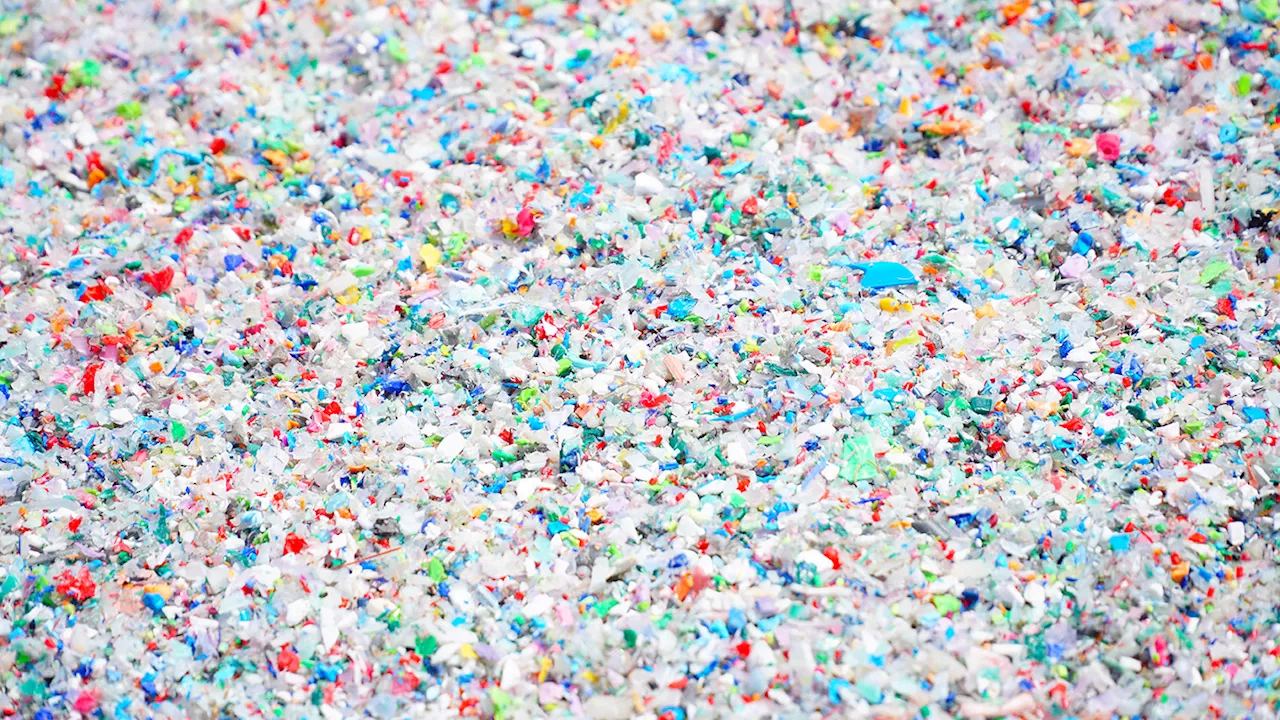A new study published in Nature Medicine found that the average human brain may contain about seven grams of microplastics, a 50% increase from samples collected nearly a decade ago. The research, which analyzed brain tissue from autopsies, also found higher concentrations of polyethylene, commonly used in bottles and films, in brain microplastics compared to those found in liver and kidney samples.
A new study found the average human brain may contain a spoonful of plastic. Microplastics and nanoplastics have been found in various parts of the human body before this latest research. This new study, published Monday in the journal Nature Medicine, looked at the content of brain samples collected during autopsies from 2016 and 2024.
Concerning concentration of microplastics found in human testes, study findsThere was also an increase in the amount of microplastics found in liver and kidney samples used in the study, but not as much of an increase as the amount found in the brain matter that was tested. The microplastics found in the brain tissue had a higher concentration of polyethylene — used in many products like bottles and films — than plastics that were found in livers or kidneys, the study also said.
Microplastics in human placentas raise fetal, maternal health concerns
Microplastics Brain Plastic Pollution Health Impact Polyethylene
United States Latest News, United States Headlines
Similar News:You can also read news stories similar to this one that we have collected from other news sources.
 Microplastics and Nanoplastics Found in High Concentrations in Human Brain TissueA new study published in February 2023 reveals the alarming presence of microplastics and nanoplastics in human brain tissue, raising concerns about the potential health implications of these tiny plastic particles. Researchers found significantly higher concentrations of MNPs in brain tissue compared to other organs, challenging the notion that the blood-brain barrier effectively protects the brain from these pollutants. The study also highlights the unexpected shapes and types of plastic found in the brain, suggesting that the long-term effects of microplastic exposure remain largely unknown.
Microplastics and Nanoplastics Found in High Concentrations in Human Brain TissueA new study published in February 2023 reveals the alarming presence of microplastics and nanoplastics in human brain tissue, raising concerns about the potential health implications of these tiny plastic particles. Researchers found significantly higher concentrations of MNPs in brain tissue compared to other organs, challenging the notion that the blood-brain barrier effectively protects the brain from these pollutants. The study also highlights the unexpected shapes and types of plastic found in the brain, suggesting that the long-term effects of microplastic exposure remain largely unknown.
Read more »
 Bacteria Found Thriving in Fish Brains, Raising Questions About Human MicrobiomeRecent research has provided compelling evidence that bacteria can exist in the brains of healthy vertebrates, specifically fish. This challenges the long-held belief that the brain is protected from outside microbial invasion by the blood-brain barrier. The study, published in Science Advances, found diverse communities of bacteria in the brains of salmon and trout, with some species showing adaptations to survive in brain tissue and cross the blood-brain barrier. While fish physiology differs from humans, this discovery raises intriguing possibilities about the existence of a human brain microbiome and its potential impact on neurobiology.
Bacteria Found Thriving in Fish Brains, Raising Questions About Human MicrobiomeRecent research has provided compelling evidence that bacteria can exist in the brains of healthy vertebrates, specifically fish. This challenges the long-held belief that the brain is protected from outside microbial invasion by the blood-brain barrier. The study, published in Science Advances, found diverse communities of bacteria in the brains of salmon and trout, with some species showing adaptations to survive in brain tissue and cross the blood-brain barrier. While fish physiology differs from humans, this discovery raises intriguing possibilities about the existence of a human brain microbiome and its potential impact on neurobiology.
Read more »
 Microplastics Found to Cause Brain Blood Flow Obstructions in Mice, Raising Concerns for Human HealthA new study reveals that microplastics can lead to dangerous blood flow blockages in the brain, potentially impacting cognitive function. Researchers tracked microplastic movement in mouse brains in real time, observing their disruption of blood circulation and impact on behavior.
Microplastics Found to Cause Brain Blood Flow Obstructions in Mice, Raising Concerns for Human HealthA new study reveals that microplastics can lead to dangerous blood flow blockages in the brain, potentially impacting cognitive function. Researchers tracked microplastic movement in mouse brains in real time, observing their disruption of blood circulation and impact on behavior.
Read more »
 Mediterranean Diet May Boost Brain Health Through Gut BacteriaA new study suggests that the Mediterranean diet, rich in olive oil, vegetables, and fish, can enhance brain health by promoting beneficial gut bacteria. Researchers at Tulane University School of Medicine found that rats who followed a Mediterranean diet had different gut bacteria patterns compared to those on a Western diet, with the Mediterranean diet linked to improved cognitive performance and memory.
Mediterranean Diet May Boost Brain Health Through Gut BacteriaA new study suggests that the Mediterranean diet, rich in olive oil, vegetables, and fish, can enhance brain health by promoting beneficial gut bacteria. Researchers at Tulane University School of Medicine found that rats who followed a Mediterranean diet had different gut bacteria patterns compared to those on a Western diet, with the Mediterranean diet linked to improved cognitive performance and memory.
Read more »
 These 11 genes may help us better understand forever chemicals' effects on the brainA study using a tiny roundworm could pave the way for new treatments for neurodegenerative disorders. Researchers linked the worm gene swip-10 to copper regulation -- a vital element for brain health.
These 11 genes may help us better understand forever chemicals' effects on the brainA study using a tiny roundworm could pave the way for new treatments for neurodegenerative disorders. Researchers linked the worm gene swip-10 to copper regulation -- a vital element for brain health.
Read more »
 Sleeping Pills May Disrupt Brain's Waste Clearance SystemNew research in mice suggests that common sleeping pills can interfere with the brain's natural waste removal process, known as glymphatic clearance.
Sleeping Pills May Disrupt Brain's Waste Clearance SystemNew research in mice suggests that common sleeping pills can interfere with the brain's natural waste removal process, known as glymphatic clearance.
Read more »
